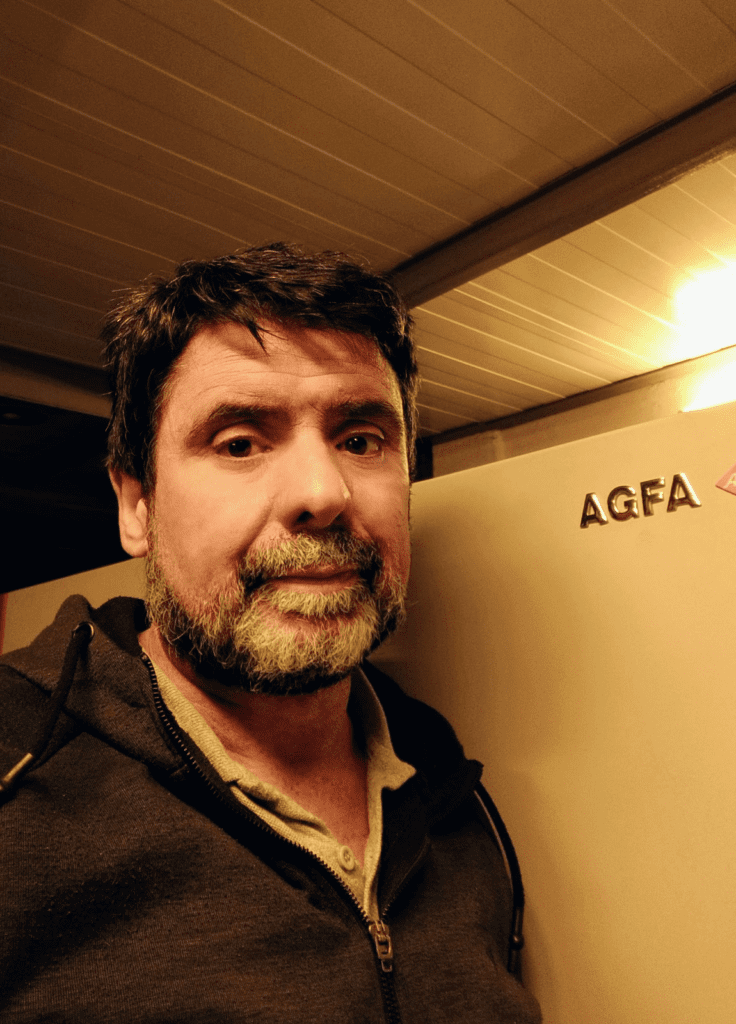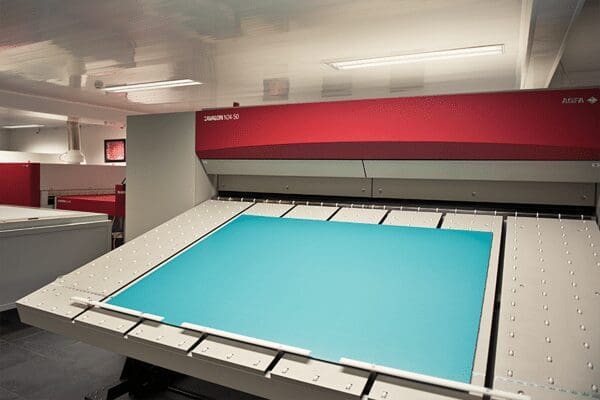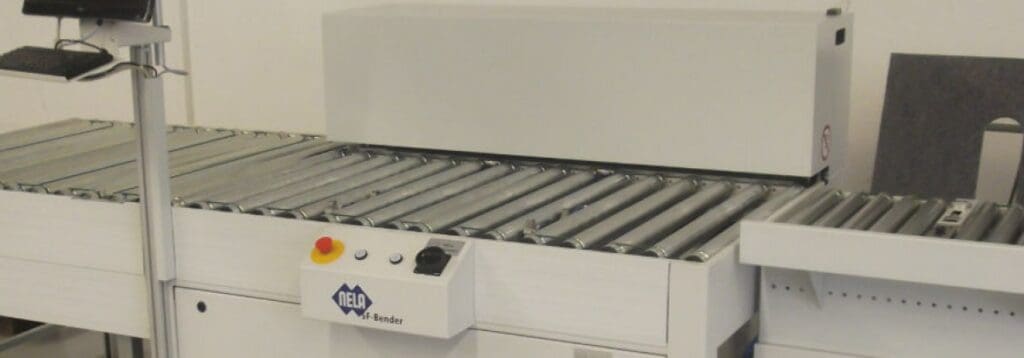Life of a Pre-press Equipment Field Service Engineer
José Barreiro Blanco is a Field Service Engineer for graphic arts pre-press equipment, mainly for newspapers. This includes working on laser film cameras, film processors, computer to plate equipment, thermal, polymer and violet plate processors, UV insulators, plate bending/perforating machines, plate washers and printers. He works for different companies including AGFA, Maquimpres, Ferpa Graphic, and Raul Artes Graficas.
He is based in Galicia in Spain.
Jose Barreiro Blanco, a Pre-press Equipment Field Service Engineer from Galicia in Spain


Background and path to becoming an Engineer
Were you interested in technical things as a child? Did you like Lego or taking toys apart?
When I was a child, I used to like to play with construction games, not exactly with Lego but with similar ones. Although I alternated it with other games of that time. I don’t think I liked these games more than other children of my age.
Are there other engineers in your family?
Although I started working as a field engineer in the refrigeration sector, my brother Luis, who was already a field engineer, was the one who introduced me to the graphic arts sector. He later changed to work in the biomedical sector.
What led you to be most interested in Electronic and Electrical Engineering?
Well, when I finished high school, I had planned to study architecture, but because I had some academic problems in the last year, I started a vocational training course in the industrial refrigeration industry.
When I finished it, I started working in a refrigeration company, but soon I returned to complete my studies at university doing an industrial engineering degree with specialization in electricity.
Later, the path of life led me to a job that is more related to automation and electronics.
Mentors
Who has/have been inspirations or mentors to you?
I think I have had several mentors or people who have inspired me during my career.
The first one was my colleague and boss in the refrigeration company, Miguel Rioboo. He was the one who I first started working with, and he introduced me to the ins and outs of the job.
Perhaps the one who has influenced my way of working the most, was my brother Luis. He taught me to follow a working method, to diagnose complex breakdowns, and so on.
Finally, Ferrán Altés, a great teacher who completed my training in the newspaper pre-press sector.
I have also worked with many colleagues and technicians from other companies and countries, from all of them I tried to learn the best way to do things.


Typical day as a Pre-press Equipment Field Service Engineer
What’s your typical day like?
Although no two days are the same, I usually check my mail first thing in the morning.
In some cases, I have to wait for the job ticket to be opened.
If necessary, I consult the machine’s service manual and ask the customer a few questions. I may also ask a colleague about the fault. I go to the customer’s plant and proceed with the repair.
There are also days when I have scheduled preventive maintenance visits to the equipment.
During the day I sometimes give remote telephone support to other technicians to help with their work.
How much of your time is spent ‘in the field’ – working as a Pre-press Equipment engineer?
The time I spend in the field usually varies a lot.
It depends on many factors including:
the difficulty in diagnosing the breakdown
how complicated the repair is.
In many cases the travel time to the customer is much longer than the work on the equipment itself.
How much of your day is spent on admin and other things?
I usually try to do all the administrative tasks in one or two days a month. These days I can spend 4 or 5 hours working on this, but sometimes it is inevitable to have to do some of these tasks in other days that are not usually scheduled.
Travel
How much travel do you do?
I usually cover an area in the northwest of Spain, the furthest client from my city is a little more than 300 kilometres away.
Less frequently I go to other clients in the rest of Spain, Portugal and on occasion I have worked in Latin America.
So it depends a lot on the clients I have to visit, but when I work in my area, I don’t usually exceed 6 or 7 hours in a day.
Different types of equipment
You work for a number of companies; how do you learn so many different types of equipment?
Well, some companies provide you with training courses or technicians who guide you for your first visits to the equipment. Then it is a matter of reading the technical manual and always having it with you to consult.
I particularly like to spend some time at the machine when I finish a repair, going through the internal menus, tests, parameters, understanding how the electrical or mechanical parts work. Then I think that you learn something from each field visit.
The more complicated the fault is, the more difficult it is to solve the problem, but then the more you learn.


Types of equipment
What sort of equipment do you work on?
The main part of my work is dedicated to pre-press equipment for commercial printers and newspapers. Computer to plate systems, mainly in newspaper printing customers, also and within the same line the plate processors.
Less frequently I work on plate benders.
Occasionally I work with pre-press software, but I am not a specialist in this area.
What is the most interesting/best designed pre-press equipment you work on or have worked on?
I think that some equipment that is very reliable and very robust is the AGFA Polaris X CTP systems. There are some that have been working for more than twenty years with countless plates imaged. Although in speed they are surpassed by the new AGFA Advantage N machines of the same brand, which are also robust and reliable.
As well, there is a machine that I have a special love for, because of its precision and mechanics, and it is the plate bender of the Nela brand. With movement mainly by pneumatics and adjustment by cameras, there are many that have exceeded 2 million plates bent without upgrading and only with minor adjustments and repairs.
The future of printing
What do you think is in the future for printing?
I see the future of printing as very complicated.
Over the last fifteen years, we have seen a gradual decrease in printing plants and smaller and smaller newspaper print runs.
However, sectors such as packaging or decorative printing applications are maintaining or even increasing their production.
I believe that the printing industry needs to reorient itself and be innovative in many ways. I am also trying to train in other industrial sectors that are different but at the same time have points in common with the printing industry.
Most challenging part of the job as a Pre-press Equipment Field Service Engineer
What do you find most challenging about the work?
I believe that everything is a whole. The main objective is that the customer is satisfied with both the technical service and the equipment. Any of the links in this chain that break can greatly affect customer satisfaction. I believe that efficient fault resolution is just as important as communication with the customer.
What has been your most difficult job so far?
During all the time I have been working there have been many complicated breakdowns.
Perhaps the most complicated resolution was when because there was no specialist technician available, I had to go to repair a machine that I really did not know. In the end, with the help of the service manual and many phone calls, we were able to solve the problem.
Have you ever arrived on site and found that it’s been much easier than you expected? For example, that you just needed to make a small adjustment or switch something on?
Yes, that often happens. It also happens the other way round: I go to the customer thinking that the fault is a simple adjustment and in the end, it is much more complicated.
I remember once when I was working with computer to film equipment, they sent me some pictures of a rare distortion in a screen, where the dots appeared deformed.
I went to the customer and what looked like a complicated optical problem turned out to be a hair caught in a fan that flew in front of the laser beam when blown. It was just a matter of removing the hair.
On the next visit to this customer all the workers had their hair cut short or tied back.
Making a winner
What sort of person makes an excellent Field Service Engineer?
In my opinion a field service engineer, apart from basic knowledge, first of all, has to be an honest person, both with the company you work for and with your customers.
As well the engineer must be a person who:
likes the job
is methodical
has a broad view of the machine
possesses a very strong sense of responsibility.
We always need to bear in mind, that a machine breakdown can sometimes be a major setback for the company and can even bring the plant’s production to a complete halt.
As well, it is necessary to be a reflective person, who knows how to stop and mentally check the operation of the machine and what can cause the breakdown. Sometimes it is better to switch off for a moment, take a break and when you come back it is more likely that a solution will emerge.
Staying current as a Pre-press Equipment Field Service Engineer
How important is it to stay up to date with other products not just the ones you work on?
I think it is essential to keep up to date as much as possible. Our work is a constant evolution, and it is not enough to be only trained in the branch of industry in which you work. In today’s world, you have to be open to working in other industrial sectors, but without forgetting to keep training and learning from your own work.
This year, I have studied three courses, one in robotics, one in biomedical and now I am studying automation and sensors.
How important is ongoing training?
At the pace at which technology is evolving nowadays, it is essential to have continuous training, not only to know the aspects that concern the machines you work with, but also all those that form part of the production chain of which that machine is a part.
I really enjoy talking to the operators of the presses, finding out what problems they may have and what the function of the equipment I work with may be involved in.
How key is it to have a mentor?
In my view, a mentor is key, especially at the beginning of most professions. Someone who can give you a broader perspective, who can give you advice based on their experience. All professions have their keys, things you don’t learn in regular training. For example, simply how to introduce yourself to a customer or how to get the most information about a breakdown, will make the job much easier. Even when you have been working for a long time you need someone to give you another view, perhaps with a broader perspective on how to orientate your career, for example.
New people
What advice would you give to someone who has just started their first job as a field service engineer:
During their first month?
I’m not too keen on giving advice. But I would say to any new field service engineer:
Find out if you love this profession as a person’s happiness is also in his working life.
I personally have learned to love this job over time. If you like what you do, you will certainly get better and better at it.
During their first three months?
After this period, I would advise to learn as much as you can in all aspects of the job, learn from your colleagues. Sometimes even customers can teach us new things about the equipment or processes we work with. But this will probably come naturally if you follow the advice in the previous question.
Apart from a strong technical background, what are the three most important skills to have?
Perhaps what has already been said, if you like this job, the rest will come from you, both technical skills and knowledge of the sector. But it is also very important to know how to disconnect from your work during your free time and your family life, everything has its time and place.
Further reading
Digital Printing Engineer working as Head of Technical Support


Responses